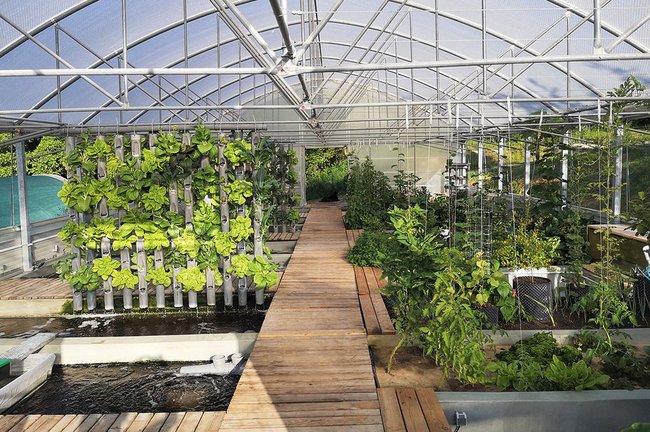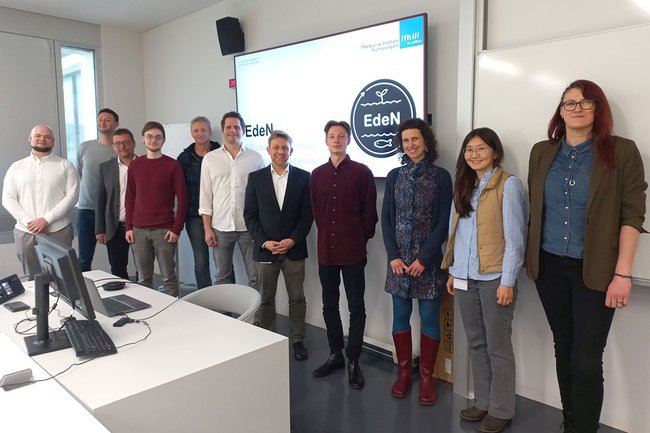Decentralised and Sustainable Food Production
St. Pölten UAS Conducts Research on Circular Economy and Closed Distribution Cycle

On the path towards becoming a sustainable recycling society, an essential building block is the efficient, resource-saving, and sustainable production of food products.
A research project of the St. Pölten University of Applied Sciences develops concepts for a circular economy with closed cycles for energy, resources, and distribution to enable efficient, decentralised, and sustainable food production.
Adapting to Challenges
The growing world population, increasingly frequent and intensive extreme weather events, and interrupted supply chains are cause for major challenges faced by traditional food production.
One possibility of solving these problems is aquaponic systems. Aquaponics is the combination of aquaculture (that is, the rearing of aquatic animals such as fish and crabs in pools) and hydroponics (the cultivation of crops like vegetables and herbs in water).
Closed Cycles
The research project EdeN (the abbreviation stands for “efficient, decentralised, and sustainable food production”) coordinated by the St. Pölten UAS aims to develop this approach further towards circular economy. “We want to design an aquaponic system that will form a combination with the closed energy, resource, and distribution cycles in food production”, says Thomas Felberbauer, project head and Academic Director of the degree programme Smart Engineering at the St. Pölten UAS.
Aquaponics manufacturer AndresFarm in Klausen-Leopoldsdorf in the administrative district on Baden is the project partner. The new system is to be evaluated by several aquaponics producers.
Energy Efficiency and Knowledge Management
When it comes to the energy consumed by the systems, the project team are working on a technological concept for (partly) self-sufficient operation. To this end, system components are made more energy-efficient, IoT (Internet of Things) devices are used for measuring and controlling the system, and the operation is made more efficient through the analysis of the collected system data. Resource cycles are closed further through new recycling possibilities for residual materials (e.g., fish waste and sedimentary deposits).
In addition, a knowledge management tool is used to exchange information and experiences. This makes operations more efficient, allows for higher yields, and raises awareness among future aquaponics operators who might use the concept or parts thereof in their facilities or in other fields of application in future.
Trust in Information
“Reliable information is the most critical aspect when it comes to the exchange of information and the traceability of products in the value chain of food products. For this reason, another desired outcome of the project is a concept for a digital system to track food products which measures sustainability and has a positive impact on customers’ purchasing decisions”, explains Felberbauer. To do this, the concept will also entail suggestions for the provision of information on sustainable and regional food production.
Concept or parts thereof developed in the project are to be made accessible and transferable for other food producers in order to point out advantages and limitations of a network of several aquaponics manufacturers.

Project team, Credit: St. Pölten UAS / Thomas Felberbauer
The project is carried out by three scientific partners: the St. Pölten University of Applied Sciences, Research Studios Austria, and the Austrian Institute of Technology. Further involved parties are the IoT provider BEIA and the aquaponics systems manufacturer AndersFarm. The project receives funding from the Austrian Research Promotion Agency (FFG).

FH-Prof. Dr. Thomas Felberbauer , MSc
Head of Department Academic Director Smart Engineering (BA) Member of the UAS Board from 2023 to 2026 Department of Media and Digital Technologies